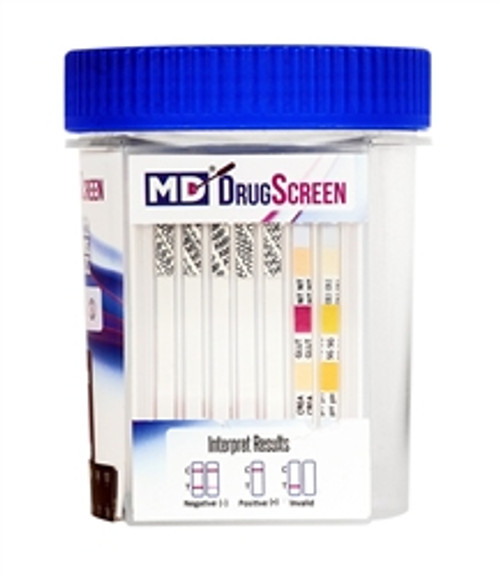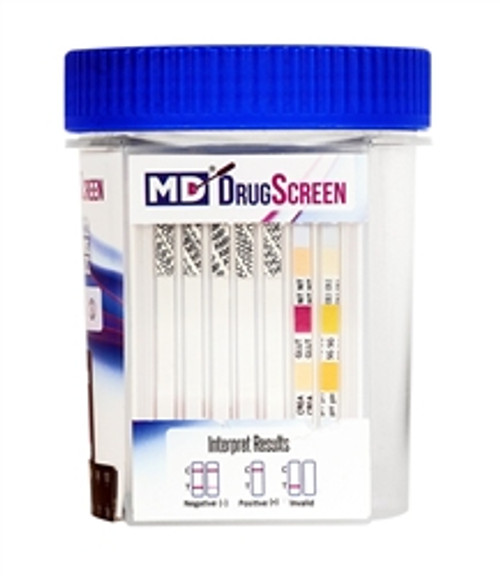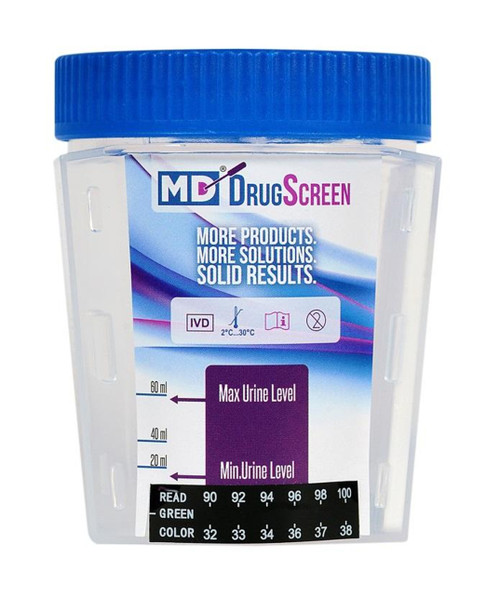The Adulterant Test Strip contains chemically treated reagent pads. Observation of the color change on the strip compared to the color chart provides a semi-quantitative screen for Oxidants, Specific Gravity, pH, Creatinine, Nitrite and Glutaraldehyde in human urine which can help to assess the integrity of the urine specimen. Adulteration is the tampering of a urine specimen with the intention of altering the test results. The use of adulterants in the urine specimen can cause false negative results by either interfering with the test and/or destroying the drugs present in the urine. Dilution may also be used to produce false negative drug test results. To determine certain urinary characteristics such as specific gravity and pH, and to detect the presence of oxidants, Nitrite, Glutaraldehyde and Creatinine in urine are considered to be the best ways to test for adulteration or dilution.
Oxidants (OXI) : Tests for the presence of oxidizing agents such as bleach and peroxide in the urine.
Specific Gravity (S.G.) : Tests for sample dilution. Normal levels for specific gravity will range from 1.003 to 1.030. Specific gravity levels of less than 1.003 or higher than 1.030 may be an indication of adulteration or specimen dilution.
pH : Tests for the presence of acidic or alkaline adulterants in urine. Normal pH levels should be in the range of 4.0 to 9.0. Values below pH 4.0 or above pH 9.0 may indicate the sample has been altered.
Nitrite (NIT) : Tests for commercial adulterants such as Klear and Whizzies. Normal urine specimens should contain no trace of nitrite. Positive results for nitrite usually indicate the presence of an adulterant.
Glutaraldehyde (GLUT) : Tests for the presence of an aldehyde. Glutaraldehyde is not normally found in a urine specimen. Detection of glutaraldehyde in a specimen is generally an indicator of adulteration.
Creatinine (CRE) : Creatinine is one way to check for dilution and flushing, which are the most common mechanisms used in an attempt to circumvent drug testing. Low creatinine may indicate dilute urine.









